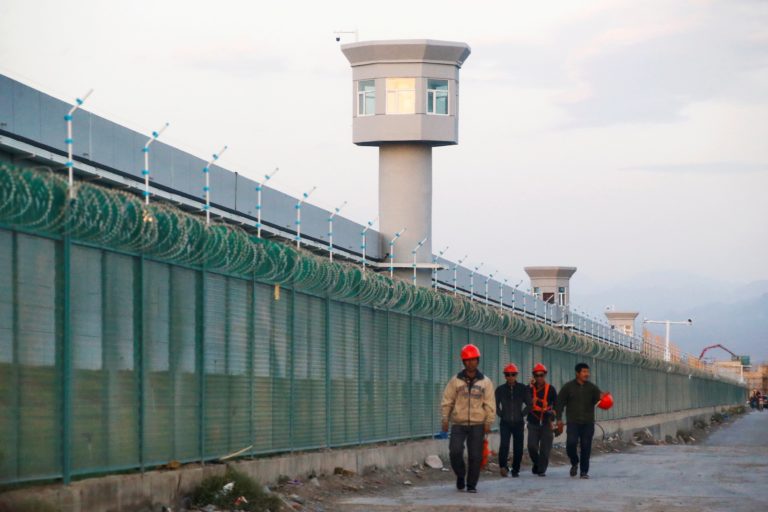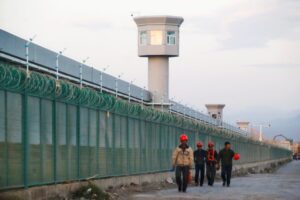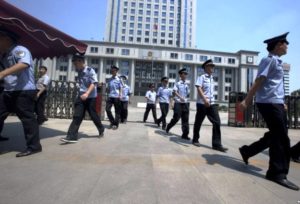Xinjiang, MINA – Chinese police in Shanghai province are building a large surveillance system capable of alerting and notifying authorities when foreign journalists travel to Xinjiang province as well as when Uyghurs leave the area, Middle East Monitor reported on Thursday.
In March this year, authorities in Songjiang District, one of the largest districts in Shanghai with more than 1.5 million residents, announced that a local integrator won a “Big Data” software project for district police worth $315,000.
According to a report by IPVM, a leading outlet reporting on physical security technology, the Shanghai police have used it to build an all-in-one surveillance system through 26 modules, sorting through the Shanghai police’s massive database to alert them to different categories of people or incidents.
One of those modules, named “Special Personnel Screening Mode”, reportedly sets up a system that automatically flags foreign journalists listed on travel records to the northwestern region of Xinjiang, either by plane or train.
Also Read: Top Economists Defend UN Gaza Report, Expose Global ‘Genocide Economy
The 26 modules also create a system that can automatically “see Uyghurs coming to Shanghai”.
Human Rights Watch (HRW) said the acts were already subject to “enhanced monitoring and control” because they were identified and frequently questioned by police when they traveled within China.
“It has been widely documented that, across China, when Uyghurs get on the train, go to a hotel, visit internet cafes, the systems that monitor these places immediately send police to interrogate these people. Uyghurs are not usually allowed to live in hotels for example,” said HRW.
According to the report, the new surveillance system and its modules work by connecting directly to the Alibaba Shanghai police cloud platform which enables the Songjiang police to access 34 types of data, including basic information on foreigners, visas, hotel check-in, transportation and entry and exit.
Also Read: Trump Approves New Weapons for Ukraine, Weighs Tougher Sanctions on Russia
Currently, the project only applies to Shanghai’s Songjiang district and not the entire city, but reportedly aims to serve as a “case study” for the “digital transformation” of the city’s entire police force. (T/RE1)
Mi’raj News Agency (MINA)
Also Read: 26 Former British Diplomats Urge Recognition of Palestinian State





































 Mina Indonesia
Mina Indonesia Mina Arabic
Mina Arabic